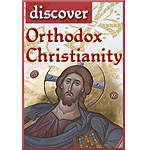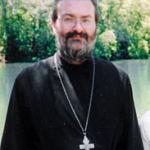
Deprecated: trim(): Passing null to parameter #1 ($string) of type string is deprecated in /home/aoiusa/public_html/wp-content/plugins/sexybookmarks/public.php on line 388
Deprecated: trim(): Passing null to parameter #1 ($string) of type string is deprecated in /home/aoiusa/public_html/wp-content/plugins/sexybookmarks/public.php on line 394
Deprecated: trim(): Passing null to parameter #1 ($string) of type string is deprecated in /home/aoiusa/public_html/wp-content/plugins/sexybookmarks/public.php on line 400
From the article: “Schaeffer’s Orthodox history might be inconvenient to him today because based on the Church’s teachings — sanctity of life, sexuality, marriage, a hyper-patriarchal priesthood — it looks a lot like the dimwitted “Taliban” Christians and “fundamentalists” that Schaeffer spends so much time denouncing of late. Then again, you can hardly go around advertising the fact that you spent years proselytizing on behalf of traditional morality if, today, you want to maximize your page views on HuffPo and get MSNBC producers to call you back.”

Source: Acton Institute | John Couretas
Frank Schaeffer: Bachmann, Palin, Perry Use Religion Like Snake Oil Salesmen (2011)
Remaining Orthodox in a Secular World : A Sermon by Frank Schaeffer (2002)
Mark Tooley, president of the Institute on Religion and Democracy (IRD), has a story on FrontPageMag.com about Frank Schaeffer’s call for the Occupy Wall Street protesters to go after Evangelical Christians. Schaeffer is the son of evangelical theologian Francis Schaeffer (1912-1984). Tooley:
A blogger for The Huffington Post, young Schaeffer is now faulting religious conservatives for facilitating Wall Street greed. He’s imploring the Wall Street Occupiers to “protest the root source of America’s tilt to the far unregulated corporate right.” For Schaeffer, the next logical step is to demonstrate “outside mega churches, Evangelical publishing houses, [and] religious organizations that lead the ‘moral’ crusades against women and gays and all the rest.”
The article, titled “Wall Street Occupiers Urged to Target Churches,” also describes Schaeffer attacking Roman Catholics as “likewise ‘fundamentalists’ who have ‘delegitimized the US Government and thus undercut its ability to tax, spend and regulate.’ So Catholic bishops, like evangelical mega churches, have also tricked their followers into voting against their ‘own class and self-interest.’” See the top video in this post for a sample of Schaeffer spleen.
In August, New York Times reporter Mark Oppenheimer interviewed Schaeffer about his new book Sex, Mom and God and said that that the author’s “break with conservatism, and with evangelicalism, came in the late 1980s.” But, as Oppenheimer described it in “Son of Evangelical Royalty Turns His Back, and Tells the Tale,” Schaeffer, Oppenheimer wrote:
… had long been skeptical of many of his bedfellows. He found the television pastor Pat Robertson and some of his colleagues to be ‘idiots,’ he told me last week, when we met for coffee in western Massachusetts. Looking back, Mr. Schaeffer says that once he became disillusioned he ‘faked it the whole way.’
Schaeffer might be telling the truth, but remember he’s a self-confessed faker. But one thing’s for sure — Oppenheimer didn’t do his homework.
The second, grainy video at the top of this post, shot in a Greek Orthodox church about six months after the World Trade Center terrorist attacks on Sept. 11, 2001, shows Schaeffer in his post-evangelical, pre-HuffPo culture wars mode — more than a decade after his purported “break” from the right. You hear him warning those in the pews about the threat from “the Islamic horde that now pours toward our frontiers” and hear him berating Protestants and Catholics for their soft “feminized” Christianity that won’t stand up to secularism, hedonism and a whole catalog of evils that might have been formulated by, say, Pat Robertson. Schaeffer wants a Christianity that isn’t wishy-washy, therapeutic and “sentimental” but has a “my way or the highway” ethic — a lot like the U.S. Marine Corps. In fact, he has found the alternative to America’s flabby faith: the Orthodox Church.
A tireless book promoter (see also the first five minutes of this longer video), Schaeffer spent a good part of the 1990s and beyond attacking Western Christianity for its many failures and novelties over and against the “pure and clean and perfect” Orthodox Church, into which he was received as a convert. The launching pad for much of this vitriol was his 1995 book, Dancing Alone: The Quest for Orthodox Faith in the Age of False Religions, which combined Orthodox triumphalism and cold-hearted sectarian vituperation and took it to new heights.
My Greek Orthodox parish was instrumental in bringing Schaeffer to Grand Rapids, Mich., in 1995 for a speaking engagement at a local high school that drew more than 1,000 people. The crowd included many curious Protestants who wanted to hear the son of the famous evangelical theologian explain why he had left the fold and converted to Orthodoxy. While in town, Schaeffer was interviewed on Calvin Forum, a public affairs program on the Calvin College educational TV channel. Indeed, the Reformed minister who interviewed him later was received into the Orthodox Church. Listen to Kevin Allen of Ancient Faith Radio interview former moderator of Calvin Forum, Robert Meyering, about the role Schaeffer played in his journey East.
What is Orthodoxy? According to Schaeffer, “it is the church that has maintained the worship, the sacrament, the truth, in its only pure form that can be found in the world today.” Problem is, in his current incarnation as scourge of the Religious Right, Schaeffer doesn’t say much about the Orthodox Church and his many years of (faking it again?) traveling the country as a Neo-Byzantine circuit rider. You see no evidence on his personal web page of any of those rants against the Catholic and Protestant enemies of Orthodoxy, nor access to a digital version of his tabloid Christian Activist newspaper that was frequently the vehicle for these attacks.
In Dancing Alone, Schaeffer decried the “Protestant debacle [embodied in the ecumenical movement] which has resulted in the disintegration of Western civilization, the acceptance of abortion on demand, the ordination of women, homosexuals and lesbians, the apostasy and heresy inherent in ‘liberal’ Protestant theology.” This was years after he “broke” with the conservatives and Religious Right? Here’s the contents page for the book on Regina Orthodox Press, the publishing house Schaeffer founded and which continues to sell titles like From Baptist to Byzantium and The Virtue of War.
Schaeffer’s Orthodox history might be inconvenient to him today because based on the Church’s teachings — sanctity of life, sexuality, marriage, a hyper-patriarchal priesthood — it looks a lot like the dimwitted “Taliban” Christians and “fundamentalists” that Schaeffer spends so much time denouncing of late. Then again, you can hardly go around advertising the fact that you spent years proselytizing on behalf of traditional morality if, today, you want to maximize your page views on HuffPo and get MSNBC producers to call you back.
IRD covered a speech Schaeffer recently gave in which he cited the Orthodox tradition’s reverence for “holy mysteries” as grounds for rejecting “the frozen being of belief.” But the mysteries of the faith in Orthodox teaching (indeed, the Christian faith rests on profound mysteries) do not provide grounds for a faith that changes, as he puts it, “like the weather.” He should go back and re-read his history of the Ecumenical Councils if he thinks that “anything goes” is how the Church does theology.
Years ago, it was obvious to some Orthodox Christians that Schaeffer had anger management issues. In a 1995 review of Dancing Alone, the scholar and essayist Vigen Gurioan said the book “oozes with the same moralism, instrumentalism and pragmatism that have contributed to the secularization and loss of catholic Christian consciousness that he condemns.”
Schaeffer, Guroian wrote, is at heart an individualist who has taken it upon himself to single handedly interpret the Truth and right all wrongs:
Schaeffer seems to have become Orthodox because the rest of America has gone wrong, and Orthodoxy is the best religious remedy for cultural crisis and moral malaise. At work here is not the catholic mind of the church but the romantic self that takes upon itself the task of reconstructing and arbitrating theological truth. Schaeffer intones “Holy Tradition” repeatedly when he passes judgment on the falsehood in others and claims truth for his own statements (“Holy Tradition says…”). But at center stage as arbiter and mediator of this so-called Holy Tradition is the “I.”
Schaeffer is still arbitrating the truth, but now from the left. Fair enough. That’s his choice. Although, inciting mobs to attack churches and publishing houses does sound a tad intolerant.
But the New York Times claim that the years of “faking it” among Christian traditionalists ended in 1985, doesn’t hold water. Actually, his right wing, sectarian hate speech phase extended deep into the 1990s and 2000s, albeit masquerading in the rich brocades of Orthodox triumphalism. You wonder: Because Frank Schaeffer is such a good faker, could he still be faking it today? Is he a double agent in the culture wars, secretly going among the liberals at HuffPo and MSNBC until the time is ripe to once again expose the evildoers with new books and fresh tirades? We’ll have to stay tuned.




